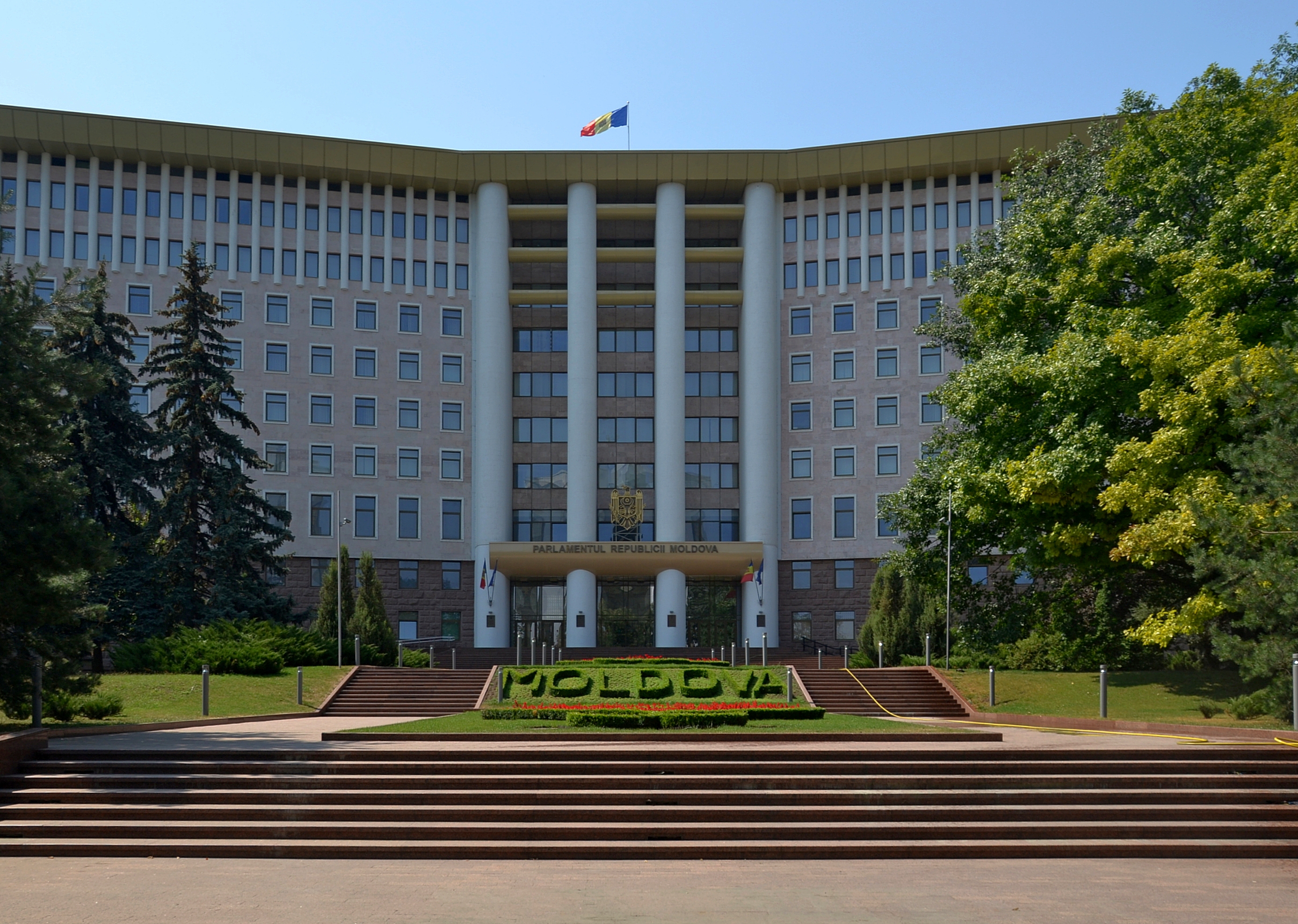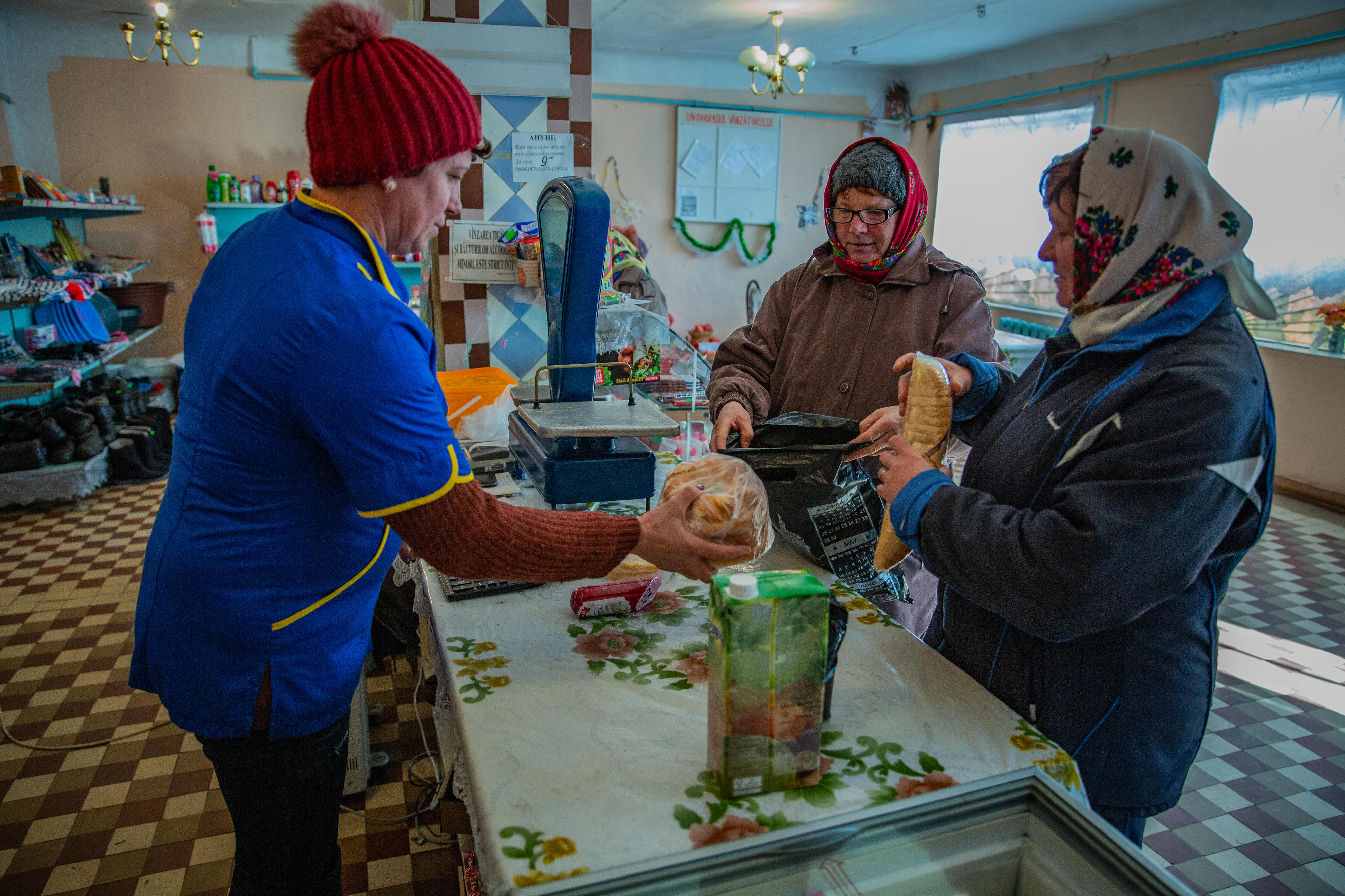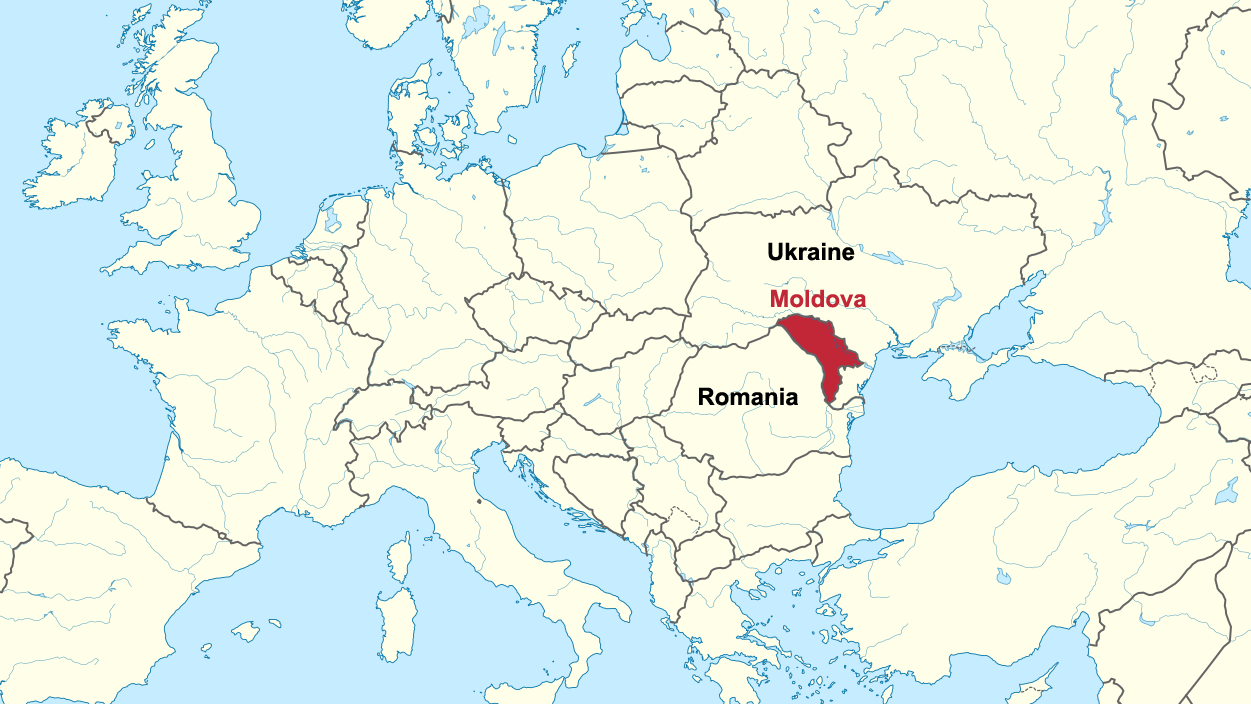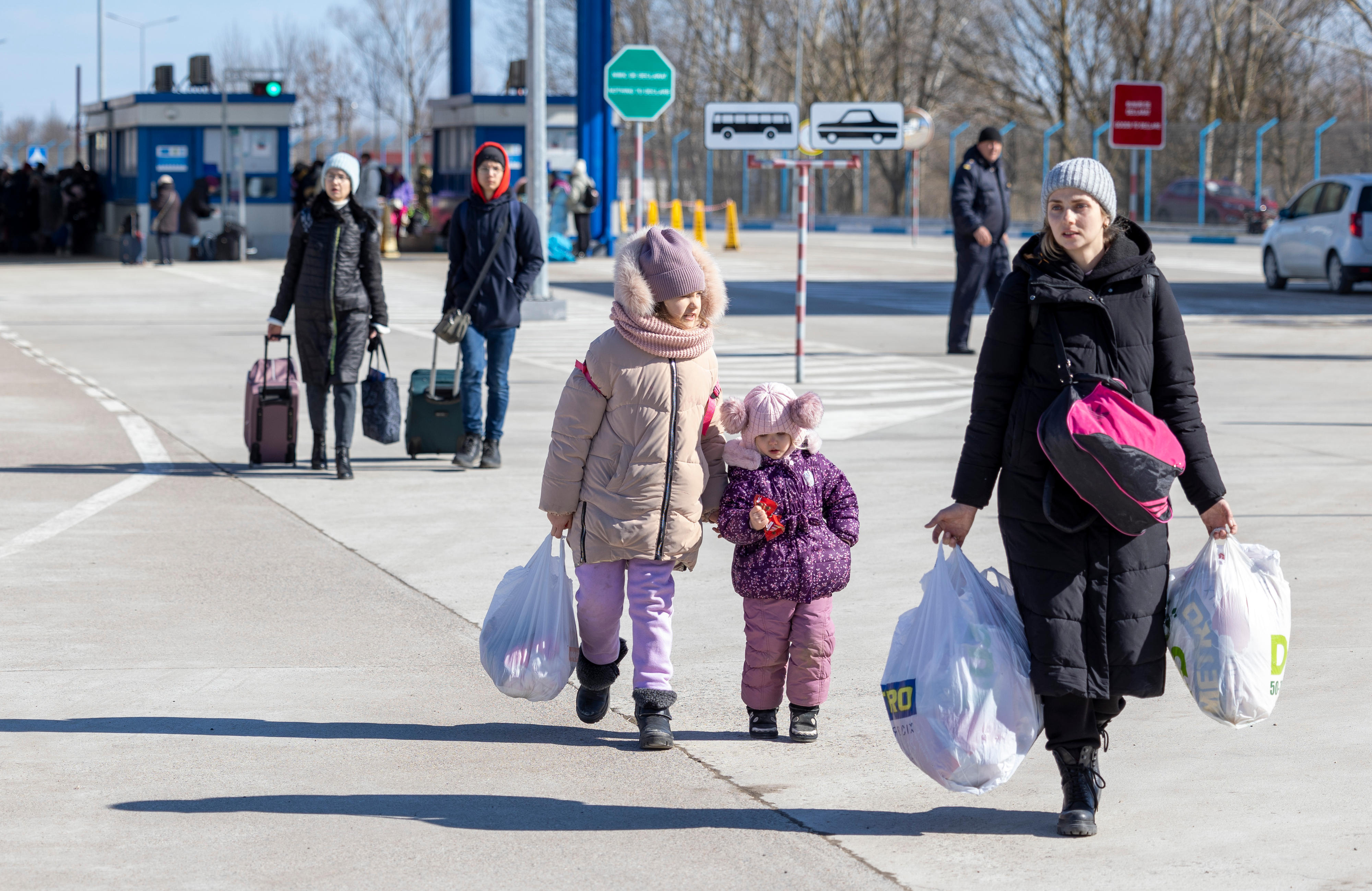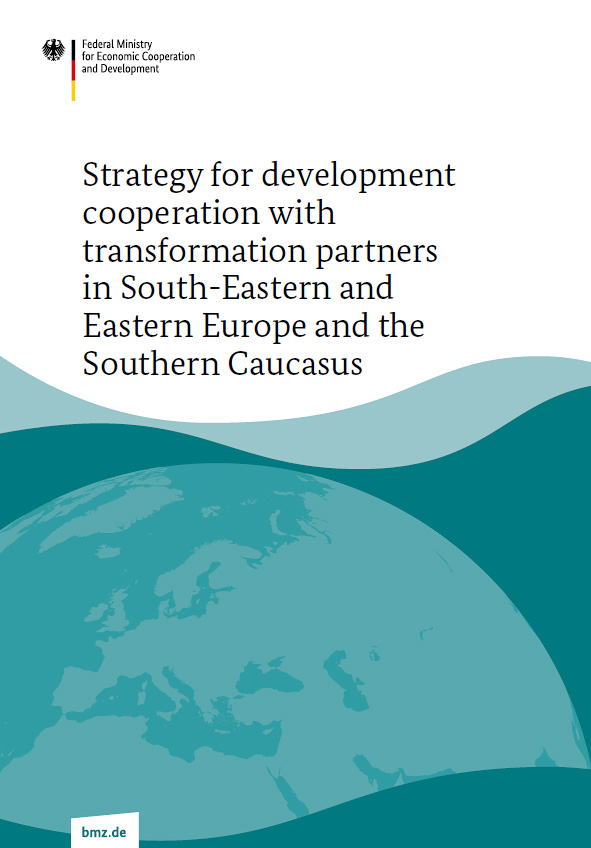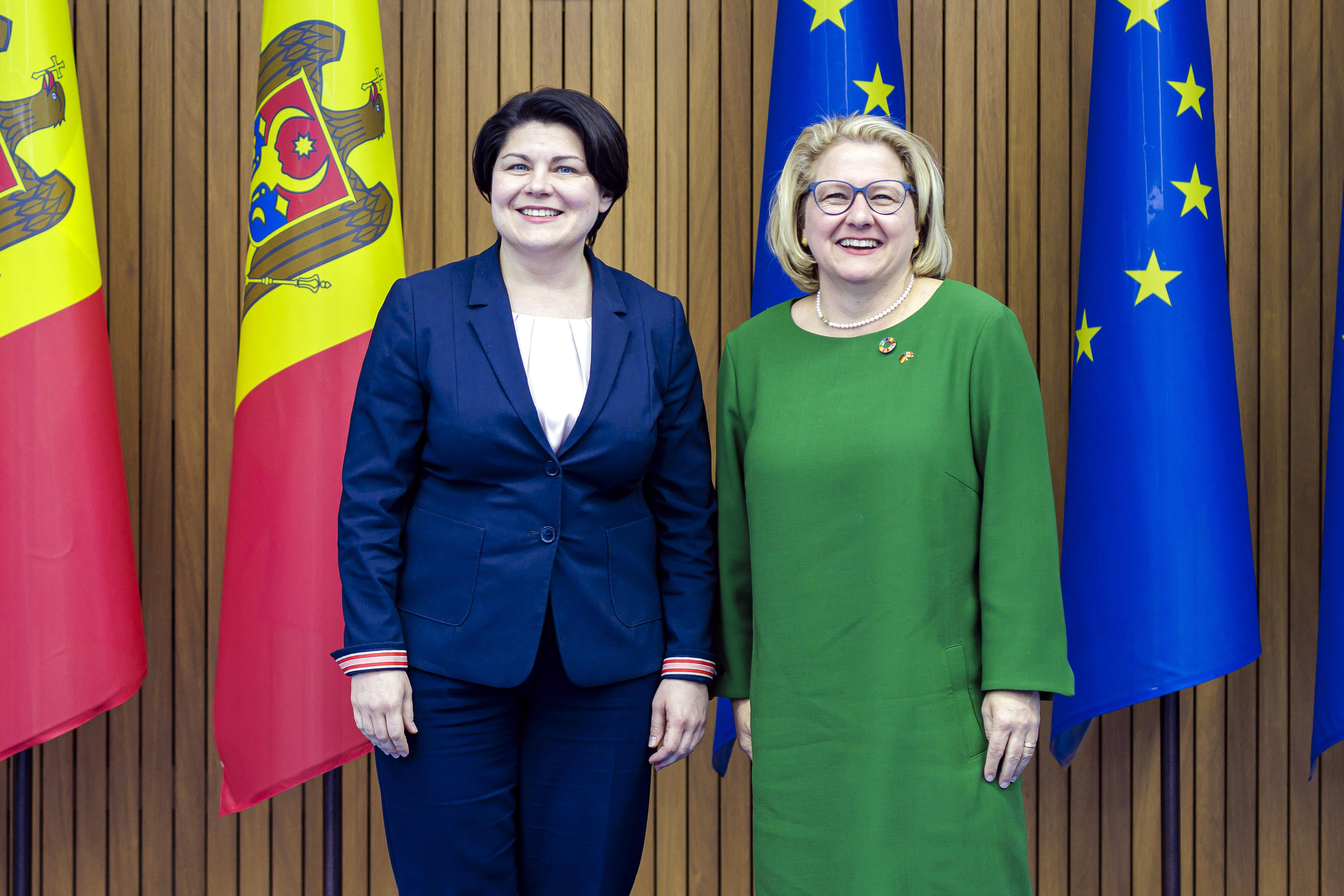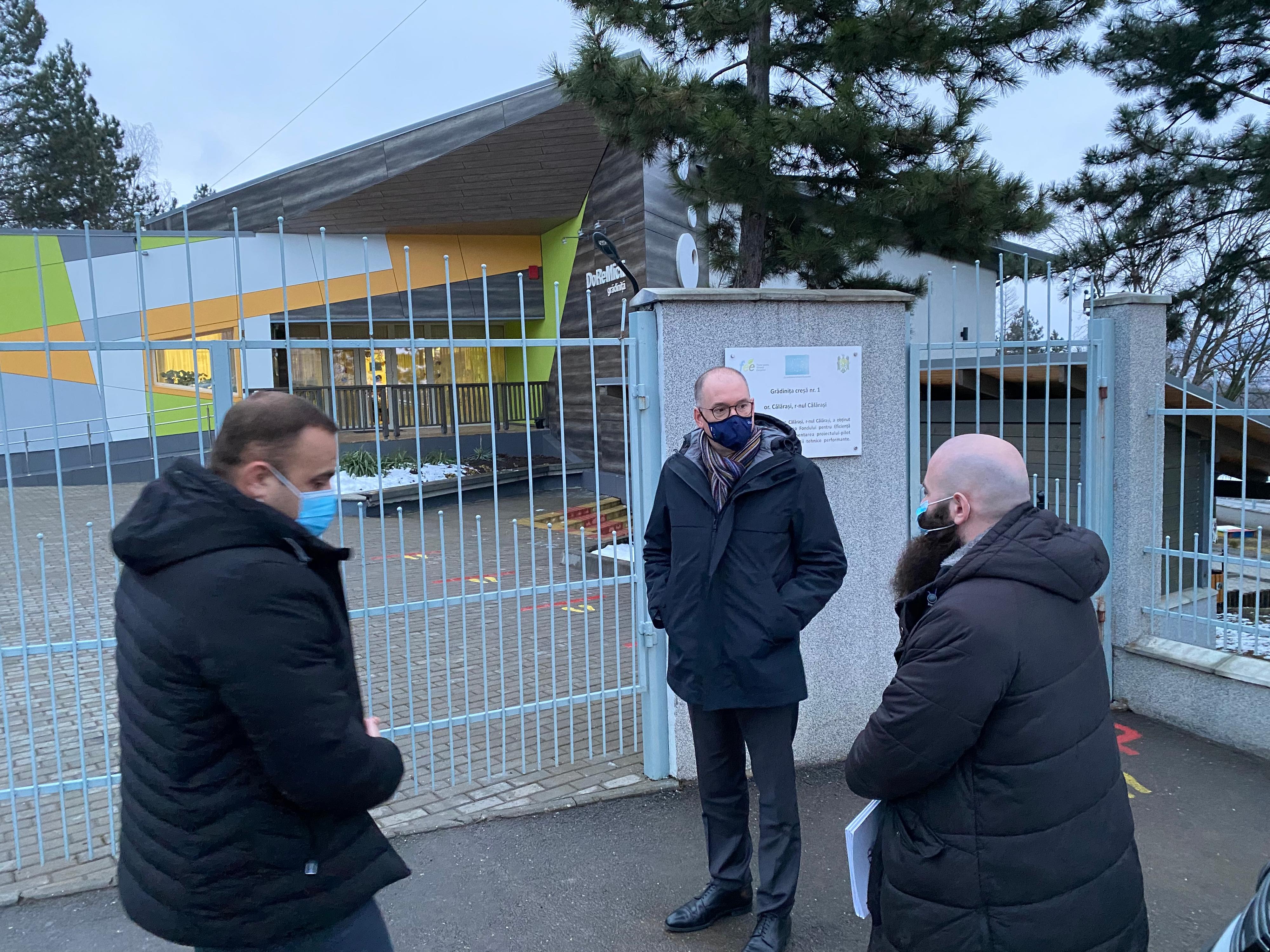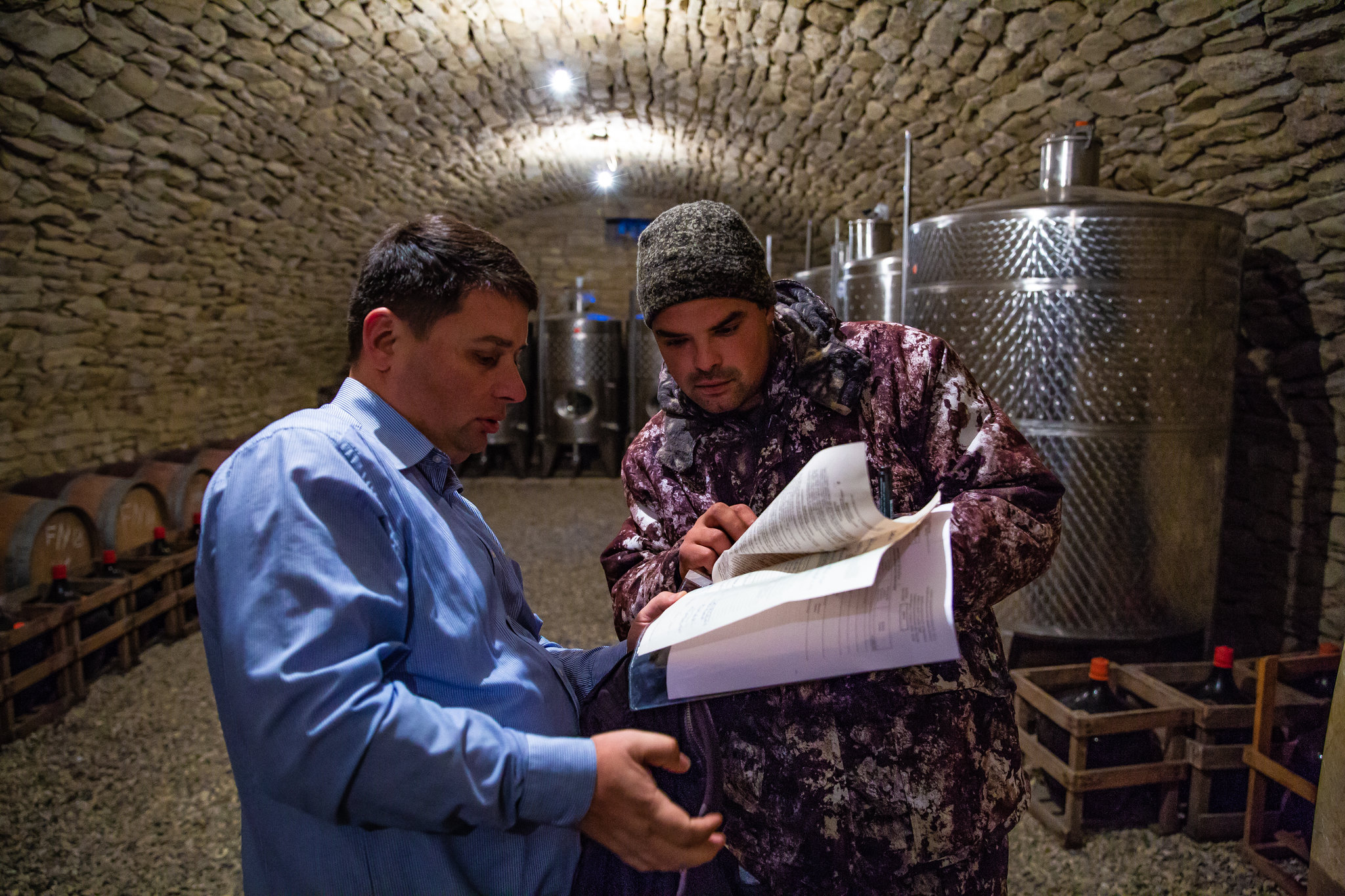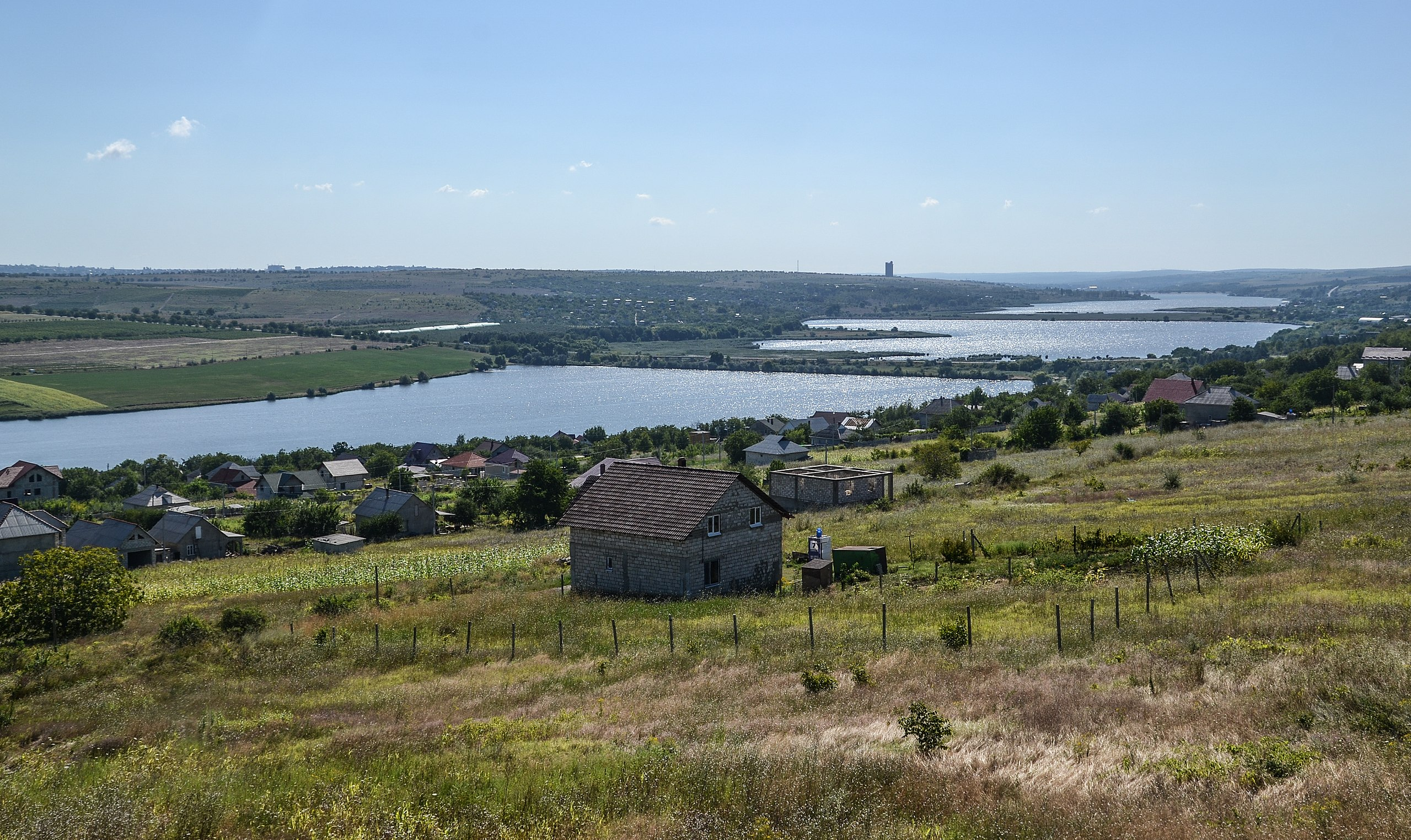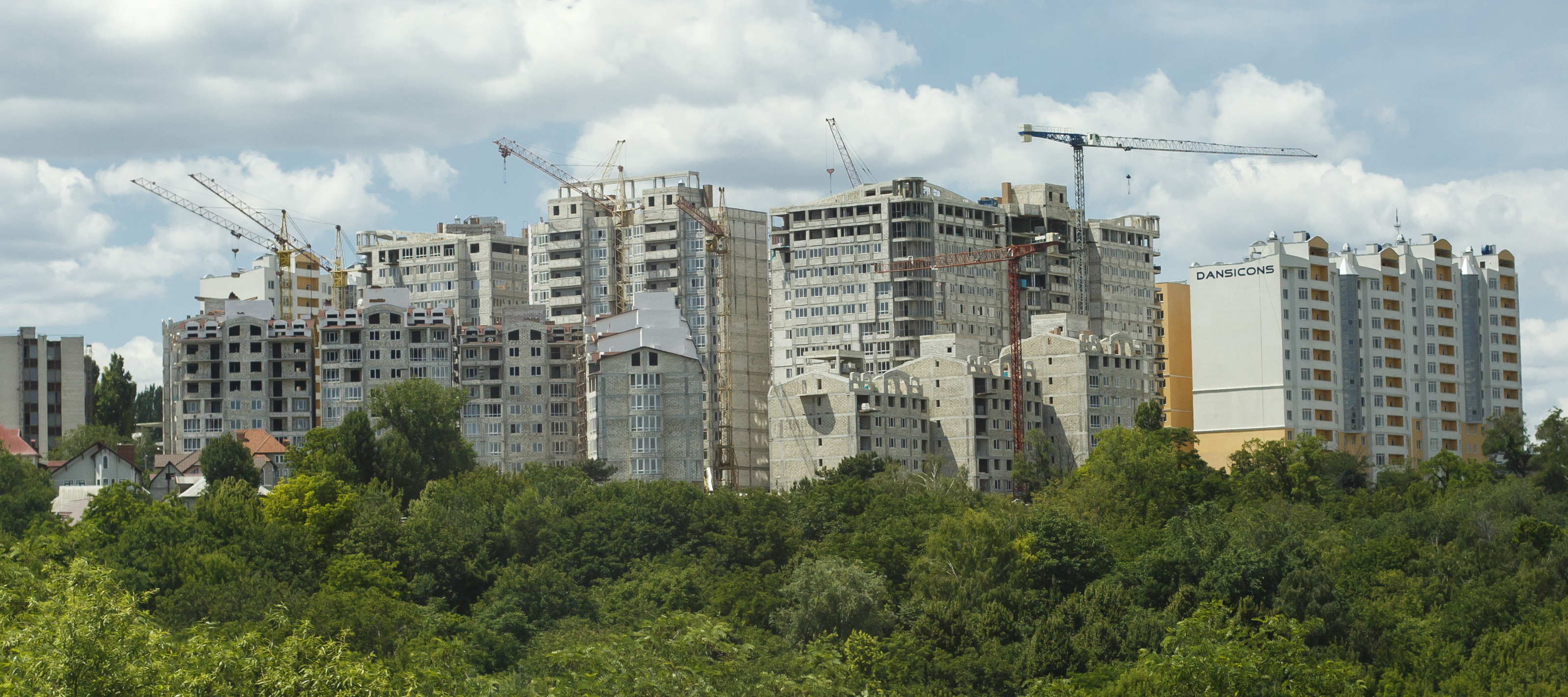Parliament in Chișinău, Moldova
Copyright© Pudelek via Wikimedia Commons, CC BY-SA 4.0
Moldova Moving closer to the European Union
Map of Moldova (red) with neighbouring states | increase map size
This country in South-Eastern Europe emerged when the Moldavian Socialist Soviet Republic declared its independence when the Soviet Union dissolved in 1991. Nearly at the same time, a conflict broke out over Transnistria, a stretch of land between the Dniester River and the Ukrainian border, which has since been a breakaway territory in Moldova.
Moldova is one of the poorest countries in Europe. Poverty particularly affects rural people, women, youth, and ethnic minorities. Nearly one million people have already left Moldova in search of better living conditions. Apart from this exodus, the greatest challenges facing the country are deficits with regard to the rule of law and widespread corruption in the private sector and in government authorities.
The government that has been in office since February 2023 has made capacity building for administrative bodies and the justice system, anti-corruption, security of the state, and the promotion of economic development its top political goals.
Since 2014, an Association Agreement has been in force between Moldova and the EU, with the aim of bringing the country closer to the EU in political and economic terms. After Ukraine applied for EU membership, Moldova followed suit in March 2022. On 23 June 2022, Moldova was granted EU candidate status.
In the course of the war in Ukraine, Moldova has taken in more refugees per capita of the population than any other country.
Ukrainian refugees at the Palanca border crossing between Ukraine and Moldova on 12 March 2022.
German development cooperation with Moldova
The Federal Ministry for Economic Cooperation and Development (BMZ) has assisted the Republic of Moldova since 1993 in its transition to democracy, the rule of law and a social market system, and in its EU pre-accession efforts. Moldova is one of the so-called transformation partners for German development cooperation in the EU neighbourhood region.
At the Moldovan-German government negotiations in July 2023, the BMZ committed a total of 45 million euros to Moldova (24.7 million euros for Financial Cooperation and 20.3 million euros for Technical Cooperation). The funding is to be used to foster economic development and youth employment, energy efficiency and renewable energy generation, capacity building for public administration institutions, and municipal development.
In view of the impact of the war in Ukraine on Moldova, the BMZ has launched a programme to strengthen the resilience of the Republic of Moldova. The support package currently totals 149 million euros (as at January 2023). It includes measures to respond to the immediate crisis and to foster socioeconomic stabilisation and development in Moldova.
The focus of the crisis response is on swift and flexible assistance for refugees from Ukraine, host communities and government institutions. The stabilisation component involves support for reform processes and sustained efforts to strengthen municipalities and the economy. In addition, activities are being implemented to mitigate the social impacts of the sharp rise in energy prices on needy households. Efforts to improve energy efficiency in buildings are under preparation.
Development cooperation focuses on the following core areas:
- Sustainable economic development, training and employment
Areas of intervention: private sector and financial sector development; technical and vocational education and training - Climate and energy, just transition
Areas of intervention: renewable energy and energy efficiency; sustainable urban development
In order to lend support to reform processes, all projects under Moldovan-German development cooperation give attention to, and promote, good governance as a cross-cutting issue. The focus is on anti-corruption and on human resource cooperation aimed at building the capacity of government institutions. In addition, support is being provided to refugees from Ukraine and host communities in Moldova.
Moldova is also benefitting from numerous German and European regional programmes under the EU's Eastern Partnership.
SDG trends for Moldova
- On track or maintaining SDG achievement
- Moderately improving
- Stagnating
- Decreasing
- Trend information unavailable
